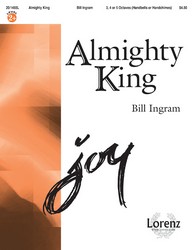- |
User Links
You Servants of God, Your Master Proclaim
Hymn Information
- First Line
- You servants of God, your Master proclaim
- Author
- Charles Wesley (1744, alt.)
- Tune Name
- HANOVER
- Arranger
- William Crofft (1708)
- Topic
- Evangelism · Jesus Christ: Lamb · Jesus Christ: Master · Praise of Christ · Elements of Worship: Praise and Adoration
Copyright Information
- Text Copyright
- Public Domain
- Tune Copyright
- Public Domain
- Reprint/Projection Information
- Words and Music: The Words and Music are in the Public Domain; you do not need permission to project or reprint the Words and Music.
Full Text
Scripture References
- · · · ·
Thematically related:
Further Reflections on Scripture References
The text is a hymn of thankful praise to Christ for his victorious reign and for providing salvation for his people. It reveals the cosmic scope of Christ's kingdom (st. I) and helps us to join our voices with the great doxology to Christ, the Lamb, as foretold in Revelation 5:9-14 (st. 24). In the first stanza "servants" refers to all Christians, not just clergy, to those made "to be a kingdom and priests to serve our God" (Rev. 5:10).
Bert Polman, Psalter Hymnal Handbook
Confessions and Statements of Faith References
Further Reflections on Confessions and Statements of Faith References
What we know as the attributes of God reveal his character and being. For these, he is worthy of praise and adoration. Even before he says or does anything, he is praise-worthy. The opening words of Belgic Confession, Article 1 declare that God is “eternal, incomprehensible, invisible, unchangeable, infinite, almighty; completely wise, just, and good, and the overflowing source of all good.”
The Lord’s Prayer ends with a doxology, and Heidelberg Catechism, Lord’s Day 52, Question and Answer 128 extrapolates: “Your holy name…should receive all the praise, forever.” After expressing our trust in the total care of God for all things, Heidelberg Catechism, Lord’s Day 9, Question and Answer 26 declares, “God is able to do this because he is Almighty God and desires to do this because he is a faithful Father.” And so we express our praise and adoration to God for who he is.
You Servants of God, Your Master Proclaim
Introductory/Framing Text
You Servants of God, Your Master Proclaim
Tune Information
- Name
- HANOVER
- Key
- G Major
- Meter
- 10.10.11.11


 My Starred Hymns
My Starred Hymns






